How to Hike Koroyanitu Heritage Park
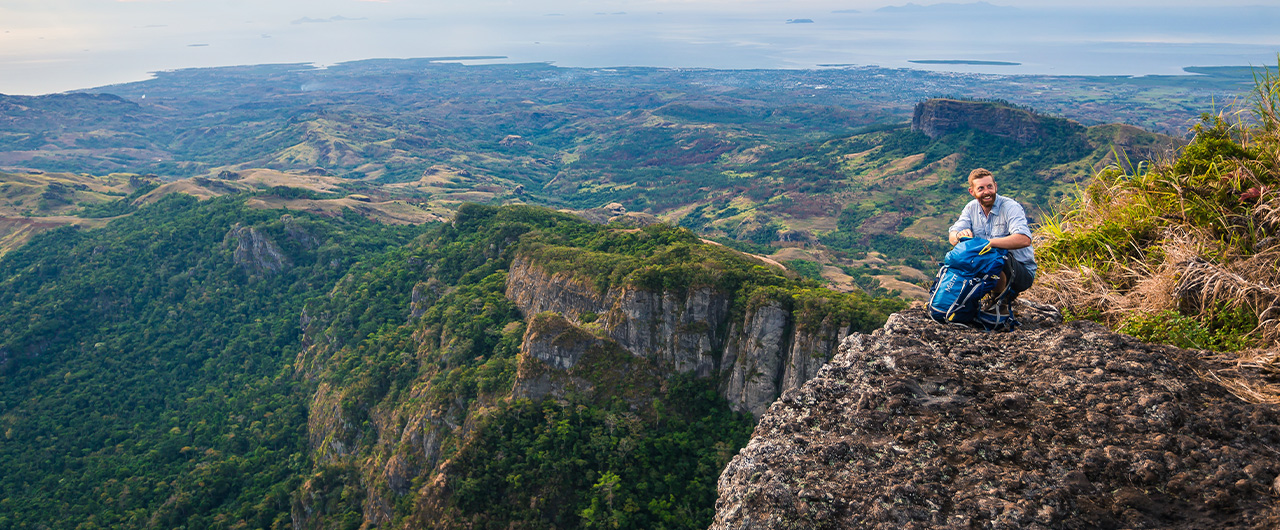
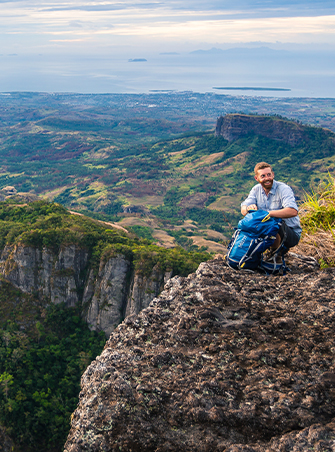
Exploring the Trails of Koroyanitu Heritage Park: A Hiking Guide
Trail Overview
The Park features three main trails – two shorter trails each to a different waterfall and a longer, more strenuous hike to the summit of Mt. Batilamu, Fiji’s fourth highest mountain (1,100m or 3,608ft).
|
Waterfall Hikes (Tunutunu & Savu-i-One) |
Mountain Trail (Mt. Batilamu) |
|
| Type | Out & Back | Out & Back |
| Length | 3hrs (Roundtrip) | 4hrs (One way) |
| Difficulty | Beginner - Moderate | Challenging (Steep) |
| Entry Fee |
(Optional extra cost for guide, food, overnight stays)
FJD $20 for local and $30 for tourist per person from the time we went in (this was 4 months ago). |
|
| Opening Hours | 7:00am – 5:00pm Everyday |
Park Description
Koroyanitu National Heritage Park is a stunning 35km sanctuary established in 1989 to protect Fiji's unique flora and fauna. With waterfalls and camping spots including cozy lodges and breathtaking views out to the islands, Koroyanitu’s hiking trails are a must-do for any serious hiker.
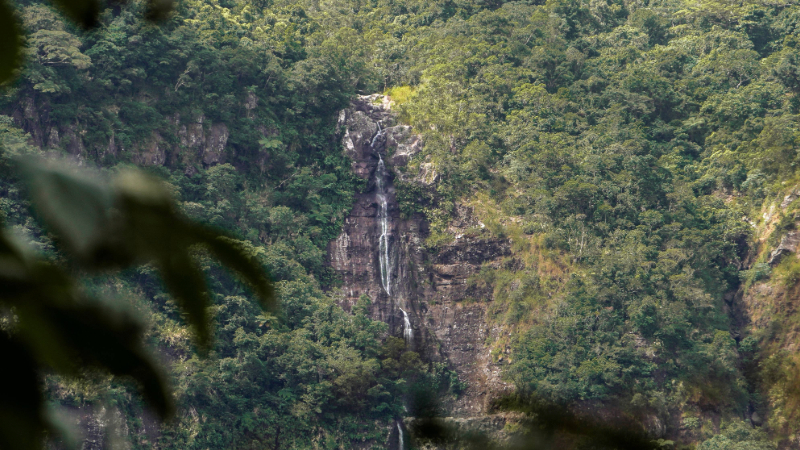
How to Get There
Located just 15km or a 30-minute drive inland from Lautoka City, Abaca Village is the ‘base camp’ for your adventure. The dirt road to the village can get a little rough during the rainy season, so a 4WD truck or a arranged taxi familiar with the route is the best way to get there.
What to Expect
All tracks kick off at the Visitor Centre in Abaca Village. They’ll provide you with trail maps, expert advice on the best routes, updates on current conditions and can also arrange homestays, village lunches and a personal guide if you want.
Also let them know If you’re a keen birder in need of a knowledgeable guide. The Park is one of the best birdwatching spots in Fiji and home to rare birds like the Masked Shining Parrot, Fiji Parrotfinch, Pacific Harrier, Red Avadavat, and the Fiji White-eye.
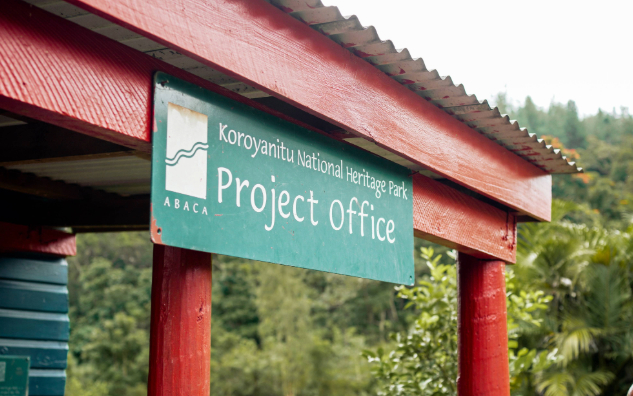
Village Homestays & Lodges
Rather than do it all in one day, you can break up your hike and explore the Park at a more leisurely pace if you stay overnight in a village homestay or one of two rustic lodges. Nase Lodge, a 40 min walk from the village, is the perfect base to explore Koroyanitu’s waterfall hikes. But for a truly unforgettable experience, camp out in the lodge at the top of Mt. Batilamu, where you’ll be treated to a breathtaking sunset and sunrise over Nadi and the nearby islands. You can then continue your hike back down to the village the next day. Both lodges sleep multiple people and have basic cooking and toilet facilities.
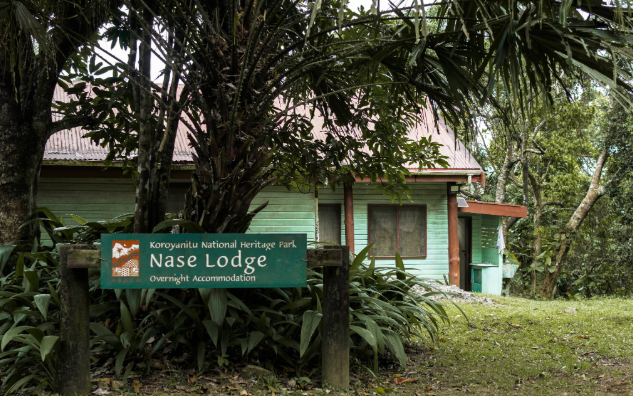
What to Bring
As the hike starts off in Abaca village, you should bring a sulu (sarong) to wear over your pants within the village boundaries. A small sevusevu (kava bundle) is also respectful but not essential. If you need, you can purchase this from the Lautoka food market before you head inland.
Like any remote hike, pack plenty of water, energy-boosting snacks, and lightweight, long-sleeved gear to tackle the sun, mosquitoes, and long grass. Don't forget sturdy shoes, a map or GPS, and some insect repellent. Sunscreen and a hat will keep you protected, and a rain jacket will ensure you’re prepared for any unexpected showers.
If you're staying overnight in the lodges, make sure to cozy up in warm layers (it can get chilly) and bring basic ingredients to cook an easy dinner and breakfast, a flashlight and a deck of playing cards for entertainment. Also bring some swimmers and a spare change of clothes if you intend to swim in any of the waterfalls.
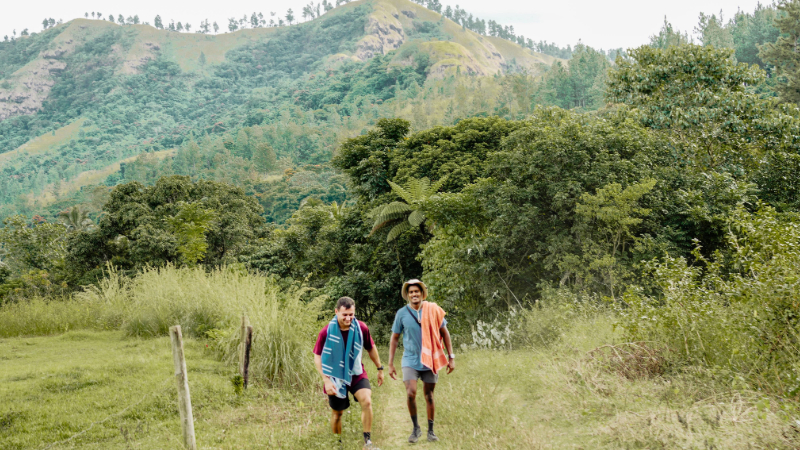
Safety Tips
Start early to catch the wildlife and skip the midday heat, and don’t forget plenty of water and snacks. We also recommend taking a local guide, especially on the longer hike up Mount Batilamu for extra safety on the trail and their excellent knowledge of local plants and animals. The longer mountain trail, though well-trodden, does not have toilet facilities or any places to rest and some parts can get slippery in rainy weather. Please also note that there are no handrails along the track, so you are walking at your own risk.
More information
The villagers are keen conservationists and work closely with environmental NGOs. As a community run eco-tourism activity, a portion of your hiking fee also helps support education, healthcare, and sustainable development in Abaca Village.
For park contacts and more detailed information about planning your hiking trip, visit the Koroyanitu Heritage Park website.